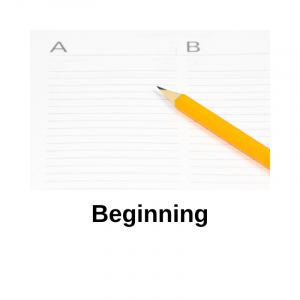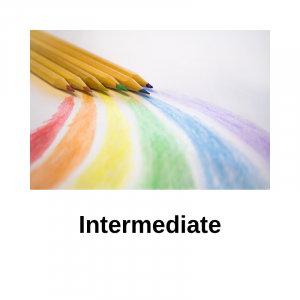Academic Language
Academic language has certain characteristics regardless of the course you are writing for.
- It is formal (see tone), yet not overly complicated. It is unlike standard conversational language and the hints and tips below will help to elevate your writing style.
- It should be factual and objective; free from personal opinions, bias and value judgments. On rare occasions you may be asked to state your own personal point of view on a particular concept or issue. You should only do so if it is explicitly prescribed. This is the only time first person pronouns (I, my, we, our – see Chapter 5) are permitted.
- Academic writing is always supported by evidence rather than personal opinion, therefore emotional (emotive) or exaggerated (hyperbolic) language are not used.
- Academic language is most often enquiring or analytical in nature, therefore you must be willing to review more than one perspective on a topic and use language that demonstrates the ability to compare and contrast ideas (see signposting below).
- Academic language should be explicit; clear and not vague. Signposting can be used to lead the reader through the text from one section to another or from one idea to the next (see below).
- Passive voice (see chapter 7) can be used to avoid the use of personal pronouns. For example, instead of writing “In this essay I will discuss…”, you can write “This essay will discuss…”
Signposting
Signposting is the use of words and phrases to guide the reader through your written work. There are two types – major and minor.
Major Signposting
Major signposting is used to signal the introduction of key sections or aspects of the work. These might include the aim, purpose, or structure.
Examples
In the introduction
- This essay will…
- The aim of this essay is to…
- The major issue being discussed is…
- This essay will define and describe…
- This essay will critically examine…
- This essay will first define…then discuss…before making recommendations for…
- This essay is organised in the following way;
In the conclusion
- To conclude,
- In conclusion,
- To summarise,
- It is evident that
Minor Signposting
Minor signposting are linking words and phrases that make connections for your reader and move them through the text.
Examples
- They may be as simple as: First, second, third, next, then, last, lastly, finally
- To offer a counterpoint: However, although, though, yet, alternatively, nevertheless
- To indicate an example: For example, notably, for instance, in this case
These are just a few examples of signposting. For further information and some very useful instances of signposting please follow the link to Queen’s University Belfast [1]
Academic Tone
Tone is the general character or attitude of a work and it is highly dependent on word choice and structure. It should match the intended purpose and audience of the text. As noted in the Academic Language section above, the tone should be formal, direct, consistent (polished and error-free), and objective. It should also be factual and not contain personal opinions.
What is the difference between tone and voice?
When learning academic writing skills you may hear “voice” referred to, especially in terms of source integration and maintaining your own “voice” when you write. Note this does not mean maintaining your own opinion. This is something entirely separate. Voice is the unique word choices of the author that reflect the viewpoint they are arguing. Your “voice” is about WHO the reader ‘hears’ when they read your text. Are they ‘hearing’ what you have to say on the topic? Are your claims direct and authoritative? Or, is your “voice” being drowned out by overuse or overreliance on external sources? This is why it is so important to understand that academic sources should ONLY be used to support what you have to say – your “voice”, NOT opinion – rather than being overused to speak on your behalf. This comes with practise and increased confidence in your own writing and knowing that you have something worth saying. Therefore, do plenty of background reading and research so that you can write from a well-informed position.
Hints and Tips
Exclude
- First person pronouns (e.g., I, my, me) and second person pronouns (e.g., you, your, yours) (see Chapter 5).
- Contractions: as part of everyday conversational English, contractions have no place in formal academic writing. For example didn’t (did not), can’t (cannot), won’t (will not), it’s (it is – not to be confused with the pronoun its), shouldn’t (should not), and many more. Use the full words.
- Poor connectives: “but”, in particular is a very poor connective. Instead, refer to the signposting examples of however, although, nevertheless, yet, though. Also the overuse of “and”; try alternatives, such as plus, in addition, along with, also, as well as, moreover, together with.
- Avoid colloquial language.
- Avoid hyperbole.
- Avoid emotive language. Even in a persuasive text, appeal to the readers’ minds, not feelings.
- Avoid being verbose.
- Avoid generalizing.
- Avoid statements such as “I think”, “I feel”, or “I believe”; they are clear indicators of personal opinion.
- Do not begin a sentence with “and”, “because”, or digits – e.g., 75% of participants… Always begin a sentence with a word – Seventy-five percent.
- Do not use digits 0-9 as digits; write the whole word – zero, one, two, three. Once you get to double digits you may use the number – 10, 11, 12. The only exception to this rule would be sharing data or statistics, however the previous rule still applies.
Include
- Academic vocabulary (sometimes this is discipline specific, such as technical or medical terms).
- Use tentative or low modal language when something you are writing is not definite or final. For example, could, might, or may, instead of will, definitely, or must.
- Be succinct.
- Include variance of sentence structure (see Chapter 7).
- Use powerful reporting verbs(see Chapter 14).
- Use clever connectives and conjunctions (see Chapter 5).
- Ensure you have excellent spelling, grammar, and punctuation.
- Use accurate referencing, both in-text and the reference list (see Chapter 10).
- Ensure correct use of capital letters for the beginning of each new sentence and for all proper nouns.
- Lastly, use correct subject-verb agreement. For an excellent list of examples of subject-verb agreement, please refer to Purdue Online Writing Lab. [2]


- Queen's University Belfast. (n.d.). Signposting. Learning Development Service. https://www.qub.ac.uk/graduate-school/Filestore/Filetoupload,597684,en.pdf#search=signposting ↵
- Purdue University. (2021). Making subjects and verbs argree. https://owl.purdue.edu/owl/general_writing/grammar/subject_verb_agreement.html ↵
definition
able to be trusted as being accurate or true; reliable
× Close definition
researched, reliable, written by academics and published by reputable publishers; often, but not always peer reviewed
× Close definition
informal, ordinary, everyday or familiar conversation, rather than formal speech or writing
× Close definition
obvious and intentional exaggeration; extravagant statement or figure of speech not to be taken literally
× Close definition
characterized by or pertaining to emotions; used to produce an emotional response
× Close definition
characterized by the use of many or too many words; wordy
× Close definition
to infer a general principle from particular facts;
e.g., my five year old loves chocolate ice cream, therefore all five year olds love chocolate ice cream
× Close definition
concise
expressed in few words
× Close definition
a verb used to report or talk about the ideas of others
× Close definition
used to link words or phrases together
See 'Language Basics'
× Close definition
refer to a single entity; names of people, places, and things (e.g., cities, monuments, icons, businesses)
× Close definition
refers to the relationship between the subject and the predicate (part of the sentence containing the verb) of the sentence. Subjects and verbs must always agree in two ways: tense and number.




